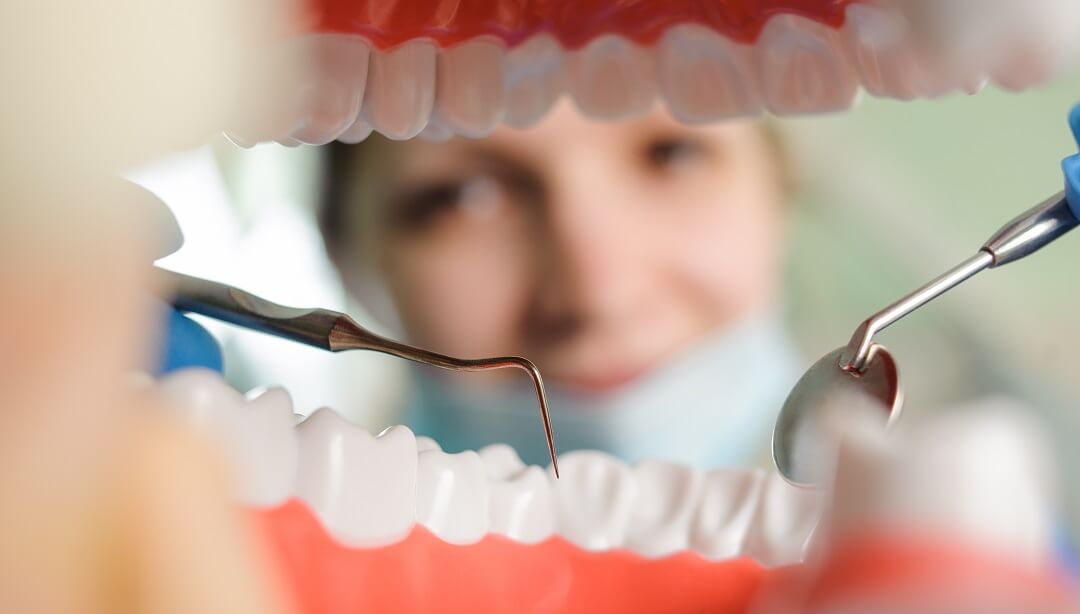Imagine this – you’re about to bite into a juicy apple, but instead of experiencing its crispiness and sweetness, you’re hit with a short jolt of pain.
Tooth sensitivity can turn even the most delightful experience – like eating ice cream – into unpleasant one. And if this happens to you, you are not alone. Teeth sensitivity affects nearly 40 million Americans at one time or another.
Why does this happen? Why are my teeth sensitive?
In this article, we’ll discuss the various factors contributing to this problem, including dental hygiene practices, gum diseases, diet, and habits. We will also delve into the symptoms, treatments, and prevention.
Understanding why your teeth are sensitive can help you manage this condition better and even prevent it from worsening over time.
Key Takeaways
- Tooth sensitivity occurs when protective layers of teeth erode, exposing nerves and blood vessels.
- Causes include aggressive brushing, teeth grinding, acidic foods, and gum recession.
- Symptoms include pain with hot/cold foods, discomfort during oral hygiene, and toothaches from sugary treats.
- Diagnosis involves dental exams, sensitivity tests, and X-rays to identify underlying issues.
- Prevention tips include gentle brushing, using specialized toothpaste, wearing mouthguards, and regular checkups.
- Tooth sensitivity isn’t always permanent; changes in oral care can alleviate discomfort.
- While occasional sensitivity isn’t problematic, persistent issues may indicate underlying problems. Seek professional help if sensitivity persists for proper diagnosis and intervention.
What is tooth sensitivity?
Tooth sensitivity, often referred to as dental sensitivity or root sensitivity, occurs when the protective layers of your teeth start to erode. This erosion exposes the tooth’s center, where nerves and blood vessels are located.
This condition can cause discomfort or sharp pain in response to triggers such as hot, cold, sweet, or acidic foods and drinks. Basic activities like brushing teeth, flossing, or being exposed to chilly air can also cause tooth sensitivity.
The role of enamel and dentin
Your teeth consist of several layers: hard enamel on the outside surface, softer dentin beneath it, and pulp inside that houses nerve endings. When you have healthy gums covering the roots and intact enamel protecting the surfaces of your teeth, these stimuli do not reach the sensitive inner parts and cause harm.
However, when this protection gets compromised due to exposed root surfaces or worn enamel creating openings reaching down into the pulp, it can trigger nerve stimulation resulting in sensations described as ‘tooth sensitivity.’

What causes teeth sensitivity?
The primary culprits are often worn tooth enamel and exposed tooth roots due to daily wear on your teeth or even aggressive brushing habits. Here are some of the major reasons why you have sensitive teeth.
1. Brushing too hard
Your brushing practices could be one reason behind those sensitive teeth. Vigorous brushing using hard-bristled brushes leads to gum recession and wears away the protective enamel layer, exposing the underlying nerves.
Rather than opting for hard or medium-bristled brushes, consider switching to soft ones. They are just as effective when cleaning your teeth without inflicting any damage.
2. Whitening treatment or products
Bleaching procedures are popular when seeking whiter teeth but often lead to temporary tooth sensitivity. These aesthetic improvements may seem appealing initially, yet they come with potential discomfort.
Using abrasive whitening toothpaste could also erode your tooth’s protective layers, leading to your teeth’ sensitive core.
3. Gum diseases and recession
Aside from your teeth, gum health also plays an important role in maintaining oral comfort too.
Gum recession occurs when the gum tissue pulls back from a tooth, exposing its root surface. This is another prime area for developing heightened dental sensitivity due to the lack of exposure protection provided by enamel, unlike other areas covered by it within our mouths.
-
- This condition frequently results from gum or periodontal disease.
- If left untreated over time, discomfort increases, and the potential loss of further gum tissue becomes more likely too.
4. Teeth grinding (Bruxism)
If you’re prone to grinding your teeth at night – known as bruxism – there’s an increased risk of dentin hypersensitivity due to worn-down enamel.
5. Dietary factors and acid reflux
Your dietary habits may also contribute significantly to developing sensitivity. Regularly consuming acidic foods like citrus fruits and carbonated drinks gradually wears down dental enamel over time, causing heightened sensitivity.
Similarly, if you suffer from acid reflux which brings stomach acid up into your mouth, this too can have an erosive effect on oral health, contributing further to potential issues like tooth decay.

Symptoms of tooth sensitivity
Understanding the symptoms associated with tooth sensitivity can be a crucial step in identifying and addressing this common dental concern. Here are some key signs that you might have teeth sensitivity.
Pain when consuming hot or cold food
The most recognizable symptom of tooth sensitivity is experiencing sharp, sudden pain when consuming hot or cold foods. This discomfort often stems from the exposed nerve-rich center. The sensation could feel like your teeth hurt, especially while enjoying an ice cream cone on a sunny day or sipping piping hot coffee during breakfast.
Discomfort during oral hygiene routines
If brushing your teeth causes more than just minor irritation, it may indicate dental sensitivity. You might find using fluoride toothpaste painful around areas where lost gum tissue has left parts of your roots unprotected by hard enamel.
Toothache triggered by sweet treats and beverages
A sweet treat should bring joy, not pain. If indulging in sugary delights such as chocolate cake triggers a throbbing ache in one’s mouth, it could signal underlying issues related to sensitive teeth. This can be caused by sugar penetrating dentinal tubules, causing nerve agitation.
While these symptoms commonly point towards tooth sensitivity, they could also hint at conditions like a cracked tooth requiring root canal treatment. Hence, professional dental diagnosis remains vital.

Diagnosing tooth sensitivity
Tooth sensitivity can cause concern, especially when it occurs suddenly or intensifies over time. Understanding the root of your teeth’s discomfort is crucial to treat and manage this common dental issue effectively.
Dental examination
A comprehensive oral examination is typically the first step in diagnosing tooth sensitivity. Your dentist will look for signs such as gum disease, tooth decay, or erosion near the gum line that could contribute to sensitive teeth.
This process not only identifies potential causes but also helps rule out other conditions with similar symptoms, such as lost gum tissue.
Sensitivity tests: Cold air test
Dentists often use the “cold air” test, where they direct a burst of cold air at each tooth. Any reaction indicates heightened sensitivity. This simple yet effective method allows them to pinpoint problematic areas swiftly without causing additional distress.
X-Rays and other diagnostic measures
In more complex cases involving deep cavities within the center of your teeth, X-rays prove beneficial in detecting underlying issues invisible during regular check-ups.
If grinding is suspected of contributing to increasing pain levels while eating hot/cold foods, using mouthguards overnight might come into play, followed by close monitoring changes over time.
It’s important to remember that it is not recommended to do self-diagnosis since many diseases share similar symptoms. A professional consultation remains the best approach always.

Tips to avoid teeth sensitivity
With the right preventive measures, it’s possible to maintain oral health and minimize discomfort.
-
- Brush with care: Avoid causing further damage by brushing gently using a soft-bristled toothbrush. This helps prevent gum tissue pulls and reduces the risk of hard enamel erosion caused by abrasive brushing habits.
- Use specialized dental products: Consider switching to products specifically designed for this issue. Use desensitizing or fluoride toothpaste, for example, which helps reduce discomfort over time by blocking dentinal tubules within the teeth roots.
- Wear mouthguards: For those who grind their teeth at night, a mouthguard could provide relief when sleeping. A custom-made one from your dentist offers a better fit and protection than generic options found over the counter.
- Consider dental procedures: If cavities are causing your discomfort, fillings may solve them. Or when decay reaches deep into your tooth’s center where nerves reside, root canal therapy is an incredibly efficient way to eliminate pain from severe decay.
- Regular dental checkups: Scheduling regular dental check-ups is integral to preventive dentistry since they can detect potential issues early, like cavities or cracks, before escalating into severe problems such as decay-causing sensitivity.

Frequently asked questions
Here, we address some of the most common questions about tooth sensitivity. Our goal is to provide clear and concise answers to your dental concerns.
Why are my teeth sensitive all of a sudden?
Factors such as using a new abrasive whitening toothpaste or consuming more acidic foods and carbonated drinks, which can erode the enamel, can cause teeth sensitivity. Another possible cause is gum recession, where the exposed roots of the teeth become sensitive to different stimuli.
Can tooth sensitivity go away?
Absolutely. Tooth sensitivity is not permanent if properly addressed. Making certain changes, such as using fluoride toothpaste or desensitizing mouthwash, can help block pain signals by sealing off the dentinal tubules that lead to the nerve center in the roots of the teeth. This can significantly reduce discomfort over time. Additionally, using a soft-bristled toothbrush instead of a traditional one can prevent further irritation to the gums while still ensuring effective cleaning.
Is having sensitive teeth something I should worry about?
In general, experiencing occasional episodes of tooth sensitivity should not immediately cause concern. It can be inconvenient during meals, as it may make it uncomfortable to consume hot or cold foods without discomfort. However, persistent and extreme cases may indicate more serious underlying issues, such as cracked tooth structures, requiring professional intervention like root canal treatments. It is important to seek immediate attention from experts to avoid potential complications in the future.
Embrace Your Smile: Soothing Tooth Sensitivity
Understanding tooth sensitivity begins with identifying its symptoms and recognizing how it can disrupt daily activities.
The culprits behind the discomfort range from worn enamel to exposed roots, cavities, gum disease, and even lifestyle habits such as grinding your teeth or using abrasive oral care products.
You now understand that diagnosing tooth sensitivity involves certain tests and examinations by dental professionals. We also shared prevention strategies to help you avoid developing sensitive teeth in the future.
If you’re struggling with persistent tooth sensitivity despite these efforts, it’s time to seek professional help. Don’t let your oral health concerns go unchecked. Early intervention can prevent more serious issues down the line.
At Soundview Family Dental, we provide comprehensive dental services tailored to your needs. Whether it’s managing sensitive teeth or addressing other dental conditions, our team is committed to ensuring that you maintain optimal oral health. Contact us today!


